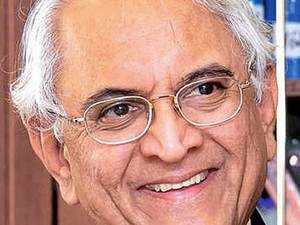Manu Pubby
India faces the unsavoury prospect of getting caught between Sino-US 5G war, NSAB chief has warned.
AgenciesRaghavan said that India needs to do more to get ahead on the technology front to meet future challenges because issues like the 5G involve a combination of economy, technology and national security factors.
NEW DELHI: India faces the unsavoury prospect of getting caught between the United States and China in the 5G battle, which is akin to a technological cold war between the nations, said PS Raghavan, the head of the National Security Advisory Board (NSAB).
Identifying an Indian standard essential patent that is awaiting global approval as the silver lining that can give the nation a toehold into the worldwide 5G pie, the senior diplomat made a strong case for independent technology development that has a bearing on national security.
“Today the kind of rhetoric that you are hearing (on 5G) from the US and China, with Europe stuck somewhere in between, you are looking at the real possibility of a technology cold war replacing the ideological cold war of the past. We are in the danger of being caught in it very badly unless we get our act together,” said Raghavan.
The diplomat, who served as India’s ambassador to Russia, was talking about new templates for India’s national security management at the Vivekanand International Foundation (VIF). He was referring to the trade war between the US and China over telecom firm Huawei that has been banned by the US over national security concerns. His views were echoed by former deputy national security adviser and head of VIF, Arvind Gupta, who said that the 5G issue “is the reflection of a new kind of cold war that is already beginning”.
Raghavan said that India needs to do more to get ahead on the technology front to meet future challenges because issues like the 5G involve a combination of economy, technology and national security factors.He also referred to an Indian attempt to get a standardisation patent before the Third Generation Partnership Project (3GPP) global body that will give it a “little toehold in the international 5G pie”.
Professor V Kamakoti, a member of the NSAB, told ET that the standard essential patent that India has developed and hopes to get approved will significantly enhance the spectral efficiency of 5G signals and will be of particular use in rural India where it would give the network a wide coverage area.

No comments:
Post a Comment